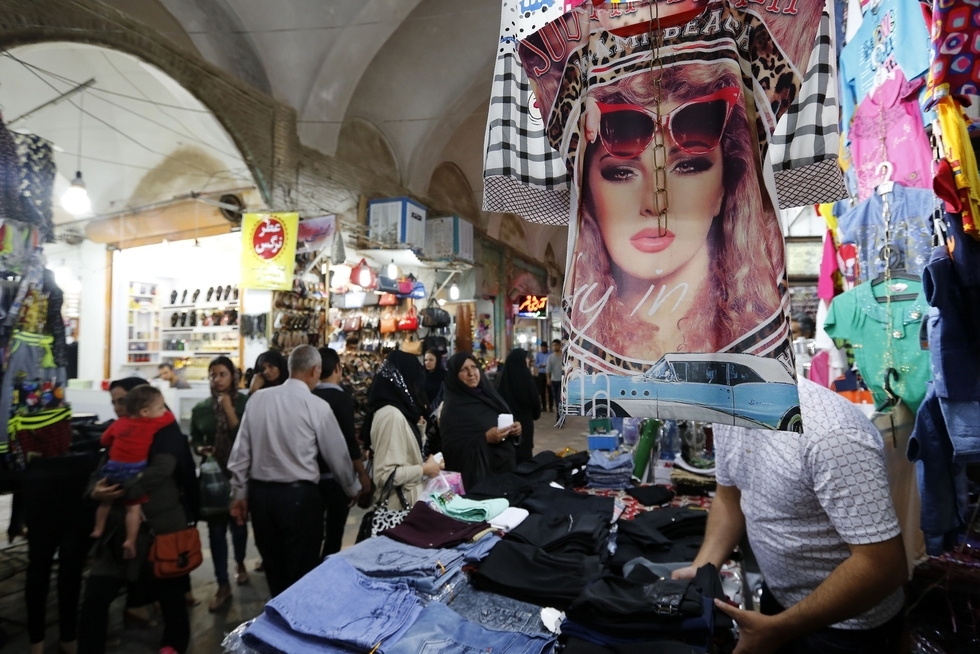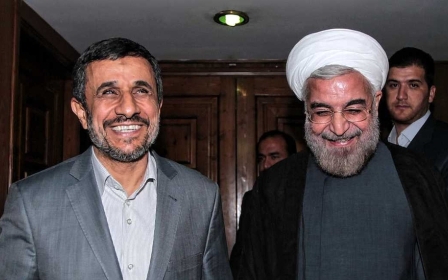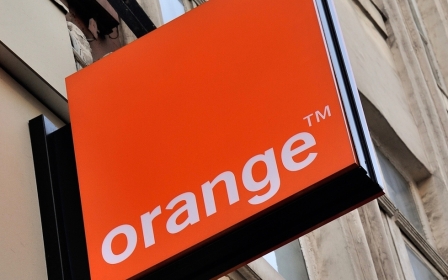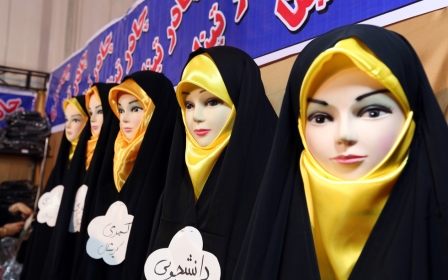Iran's abysmal economy: Will Iranian voters show Rouhani the door?

In August, a popular Iranian news outlet, Fararu, interviewed four renowned Iranian economists. They were asked to examine the state of Iran’s economy under President Rouhani. Then, because it is expected that economy will be the primary flashpoint between the conservatives and the moderates in the upcoming presidential elections next spring, the four economists were asked to investigate the probability of Rouhani winning a second term in the context of his major economic failures and successes.
Farshad Momeni, known as a religious-nationalist economist, maintained that “the period of 2005-2013,” under the tenure of Mahmoud Ahmadinejad was “the worst years in the history of the Islamic Republic of Iran” due to the emergence of “vast and deep corruption”.
“This, I say based on a report published in 2013 by Iran’s Islamic Parliament Research Center,” Momeni remarked.
He noted that “net capital flight within a span of five years, i.e. between 2005 and 2010 increased 125 times”. He emphasised that this was before sanctions were imposed on Iran.
He then noted that Rouhani not only inherited a disastrous economy that suffered an inflation rate of 40 percent, but even worse was that in the first year after he took office the price of oil was reduced by $70 per barrel.
'Deep and unprecedented recession'
While he praised Rouhani for bringing inflation down, from 40 percent to around 10 percent, he warned that this has been done at the price of creating a “deep and unprecedented recession … [resulting in the] people’s dissatisfaction.” “My studies show that, as a result [of this recession], we are witnessing the rapid shrinkage of the middle class and the unprecedented expansion of poverty.”
Momeni suggests that “undoubtedly … [the current economic conditions] will have serious negative effects [on Rouhani’s election] because the low-income do not feel any improvement in their livelihood under Rouhani whatsoever”.
Nasser Imani, another economist, politically known as a conservative, also emphasised that Rouhani and his cabinet have been able to control inflation, but at the cost of deepening the recession. He said that long-suffering people are disappointed because they had high expectations for change as a result of the realisation of the nuclear deal (JCPOA). None has been met, he noted.
Even worse there “were false expectations at the managerial level of the government that the JCPOA will create huge economic opportunities and billions of dollars will quickly flood into the country’s economy. Once this did not happen the management at the highest level was left confused and things came to kind of a halt,” Imani said.
He added, “People vote for a person whom they think is capable of bringing change and improving their livelihood. As a result, the upcoming elections will be the toughest an incumbent president has faced since the revolution.”
Imani added, “I’m not saying that Rouhani will definitely lose … I’m saying that he will face a very difficult situation in the elections.”
Production rising
Saeed Leilaz, close to the reformist camp, argued that the 4.4 percent economic growth in the first three months of the current Iranian year, which began on 20 March, has had a positive effect on people’s livelihood. “We are manufacturing 500,000 more cars this year compared to 2012 [during Ahmadinejad] while we know that buyers of locally made cars are typically low and middle-income families.”
He criticised those who claim that Rouhani has only been able to control inflation at the cost of pushing the economy into recession. He said that according to economic definitions we are in recession if economic growth is zero or negative for two consecutive quarters. “We have never had such a situation in the last three years,” he remarked.
When asked about the effect of the economy on Rouhani’s electability, he said: “Let me ask you this: didn’t we have parliamentary elections five months ago? People voted positively for Rouhani. … There is no doubt that Rouhani was the victor because the reformists and independents won the majority [in parliament against the conservatives]. I’m certain … that Rouhani will win the 2017 elections,” he concluded.
Where is the benefit of nuclear deal?
Ali Dini Torkamani, an institutionalist economist closer to the reform camp, says that people see no change in the reduction of unemployment while a recession is palpable. “People ask, there is no improvement in the job market, retailers say they are struggling because of low sales, manufacturers claim that they are not working at their full capacity, so where does this economic growth come from?”
Dini argued that the 4.4 percent growth is most likely correct but that it is mainly due to the doubling of oil exports and oil derivatives. Dini believes that Iran needs higher growth rates and a longer time to compensate the negative growth during recent years.
He argued that with high unemployment, “people are depressed and hopeless. Naturally they partly blame Rouhani’s administration for this situation.
“But I believe Rouhani will be able to convince people that the root of the current problems originates [in the administrations] before him.” Dini also believes that Rouhani can convince people to vote for him by telling them that in the absence of the nuclear deal and improved relations with the world, the situation could have been much worse. Dini says Rouhani can win people’s vote by saying: “This is the path we are walking while our opponents’ intention is to take the country back to the pre-JCPOA era,” bringing back sanctions and political isolation.
Concluding, Dini raised a crucial point. He says, “During elections people do not decide just based on economic factors. In the recent parliamentary elections … the effect of political affiliation of the candidates on attracting people’s votes was very obvious.”
In February's elections, the mega-city of Tehran, which has 30 seats out of 290 in parliament, was one of a handful of cities where the number of moderate/reformist candidates who were vetted by the Guardian Council and were allowed to run was more than the number of seats – giving voters a greater choice of candidates. Tellingly, voters in the capital prevented the conservatives from gaining even one seat out of 30.
There are also other factors to be considered when weighing Rouhani’s chance for victory.
Comeback for Ahmedinejad?
Conservatives – Principlists as they call themselves – are now divided into two camps. The majority is now closer to the moderates, distancing itself from the ultra-conservatives, also known as hardliners. Ali Larijani, chairman of the Parliament and the leading figure of this majority current has very good relations with Rouhani.
In July, Mohammad Reza Bahonar, a key Principlist figure who also belongs to the majority current said: “Rouhani is one of the options that Principlists are considering.” Simply put, conservatives have no plausible candidate to rival Rouhani.
So, regardless of Rouhani’s report card, if people say no to Rouhani, who they are going to say yes to? Some polls suggest that former president Mahmoud Ahmadinejad could be another people’s choice.
While the dominant, moderate faction of Principlists will not support Ahmadinejad – Larijani has a very strained relationship with the former president – political activists coming from different political currents overwhelmingly believe that should Ahmadinejad become a candidate, he will be disqualified by the Guardian Council.
- Shahir Shahidsaless is an Iranian-Canadian political analyst and freelance journalist writing about Iranian domestic and foreign affairs, the Middle East, and the US foreign policy in the region. He is the co-author of Iran and the United States: An Insider’s View on the Failed Past and the Road to Peace. He is a contributor to several websites with focus on the Middle East as well as the Huffington Post. He also regularly writes for BBC Persian. He tweets @SShahisaless.
The views expressed in this article belong to the author and do not necessarily reflect the editorial policy of Middle East Eye.
Photo: Iranians shop at the old bazaar on 15 August 2016 in the southern Iranian city of Sirjan. (AFP)
This article is available in French on Middle East Eye French edition.
Middle East Eye propose une couverture et une analyse indépendantes et incomparables du Moyen-Orient, de l’Afrique du Nord et d’autres régions du monde. Pour en savoir plus sur la reprise de ce contenu et les frais qui s’appliquent, veuillez remplir ce formulaire [en anglais]. Pour en savoir plus sur MEE, cliquez ici [en anglais].





